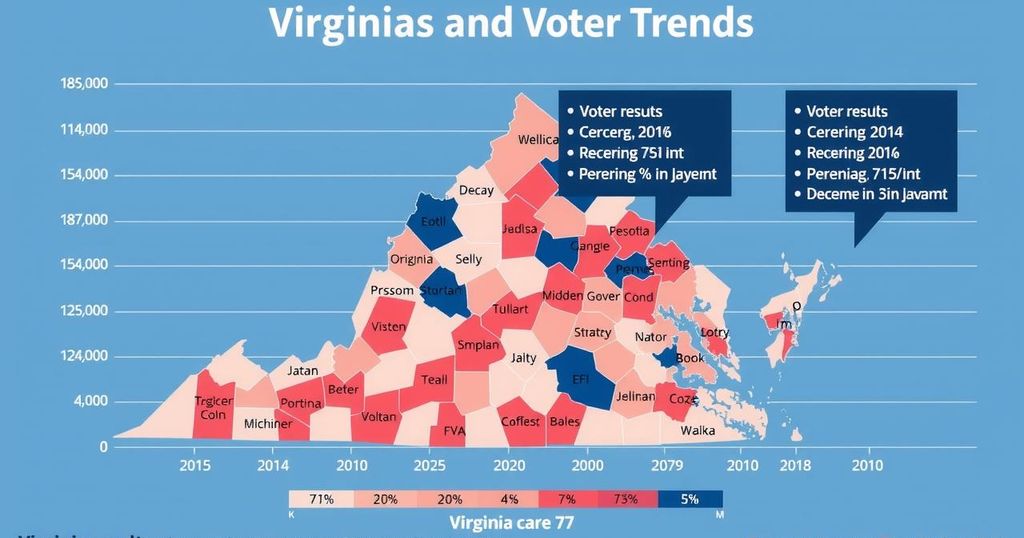Virginia Special Elections Reveal Steady Political Landscape Ahead of 2025 Gubernatorial Race

Virginia’s special elections revealed no major voter sentiment shifts, as Democrats protected their statehouse majority, and Republicans made a modest gain. These elections serve as an early indication of political dynamics heading into Virginia’s gubernatorial elections in 2025, with Governor Youngkin navigating a Democratic legislature during his final year in office. The legislative session will be crucial for gauging broader national political trends.
In recent special elections held in Virginia, political expectations remained largely unaltered. Democrats successfully defended their slim majority in the state legislature by securing victories in two liberal districts, while Republicans managed to capture a seat in a conservative area. The elections drew attention as they marked the state’s first test of voter sentiment following the recent presidential elections, particularly after President Trump’s notable successes in November. With both Virginia and New Jersey conducting gubernatorial elections in the post-presidential election year, interest in the state’s political dynamics is expected to sustain well into the future. Governor Glenn Youngkin, facing term limits and a Democratic-controlled legislature, is perceived as a potential candidate for the presidency in 2028. As the legislative session unfolds and discussions around budget amendments commence, the year ahead could bring political challenges for Youngkin. Public sentiment, invigorated by recent election results, will be pivotal as Virginia inches closer to the governor’s race in 2025, marking another critical moment in the national political landscape.
Virginia holds a unique place in the American political calendar as it conducts most of its state elections in odd-numbered years, a feature that can result in unexpected shifts and reflective voter sentiment. With the 2025 gubernatorial race approaching, the outcomes of recent special elections provide insight into voter behavior and party dynamics following the tumultuous 2020 presidential election and the impacts of the Trump presidency. As both Democratic and Republican candidates prepare for the upcoming elections, the current configuration of Virginia’s legislature, now narrowly divided, will undoubtedly influence party strategies and legislative agendas, with broader implications for national politics.
In conclusion, the recent special elections in Virginia reaffirmed the existing political landscape without indicating any significant shift in voter sentiment. The Democratic Party retained its legislative majority, while the Republican Party continued to secure strongholds in conservative regions. With critical gubernatorial elections on the horizon, political observers will remain vigilant, recognizing that Virginia often serves as a bellwether state reflecting broader national trends. The political actions taken in the coming year, particularly by Governor Youngkin, will be essential for understanding both state and national ramifications as the political race heats up.
Original Source: apnews.com








